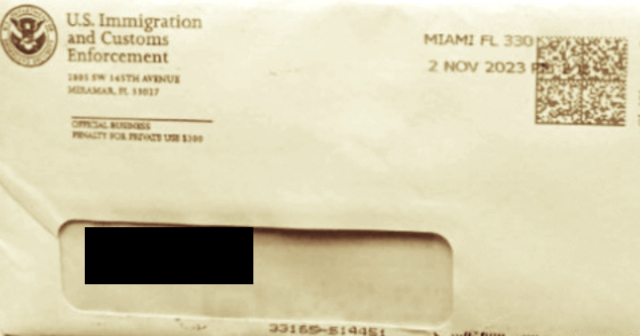The Customs and Border Protection Agency (CBP) has commented on the situation of dozens of Cuban beneficiaries of humanitarian parole who remain stranded on the island because They have not just received the travel permit.
When asked about the number of beneficiaries reporting problems, the agency said: “CBP processes 30,000 parole cases monthly. Therefore, 300 is a very small minority of cases.”
In the document -cited by Telemundo 51- CBP indicates that “family requests cannot be prioritized over individual requests.”
However, the Agency recommends “that family members file their petition together as this may increase the likelihood that they will be prosecuted together.”
“CBP does not say or explain why these delays are occurring. The way it is interpreted is that it is simply part of the process,” immigration lawyer Rosaly Chaviano told the aforementioned media.
The lawyer obtained the aforementioned response in a questionnaire from the American Immigration Lawyers Association, where CBP agents responded on the subject.
“They are saying that relatives who have other beneficiaries waiting have to make a decision about whether to come to the US or wait for them”, added the lawyer.
CBP is saying that if someone in a family needs a broader review “they are not going to put up with approval from others for that (case).”
They are Cuban beneficiaries of humanitarian parole whose sponsors were confirmed by the Citizenship and Immigration Service (USCIS), but who after following their application in CBP One, have not received a travel authorization.
It is estimated that at least 300 beneficiaries have been victims of delays in travel permits, in periods that in some cases even exceed 200 days of waiting.
Many of the beneficiaries of this program demand from the United States government greater flexibility in the travel permits required to enter the northern nation.
At the beginning of March, a federal judge from the court of Victoria, Texas, decided to maintain the humanitarian parole program.
The judge's decision was based on the fact that the 21 Republican states that sued the federal government when this program began could not demonstrate that the parole had brought them significant damages.
The decision, which pleased many Cubans, also brought concern about delays in processing applications, one of the aspects that has been most criticized since the program began in January 2023.
The question that many are asking now is whether the support received for parole by a federal judge in Texas will allow more agility in the resolution of cases.
However, uncertainty grew much more on April 9, when More than three thousand denials of applications were registered.
Immigration attorney Ralip Hernández then said in statements to Univision 23 that the probable cause was an increase in the demands in reviewing requests, technical problems on the platform, or errors when submitting documentation.
In the last year, tens of thousands of Cubans have put their hope in humanitarian parole as the most viable and fastest legal way to reach the United States and start a new life.
What do you think?
COMMENTFiled in:
